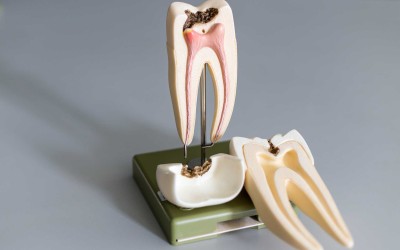Practical Strategies to Combat Bad Breath

Practical Strategies to Combat Bad Breath
- 31 October 2023
- 2969 views
Combat bad breath effectively with Dentevim's expert tips for fresher, healthier oral hygiene.
This content is for informational purposes only and does not replace medical advice, diagnosis, or treatment. Please consult a healthcare professional for any health concerns.
Table of Contents
Bad breath, or halitosis, is a discomforting issue that can affect both individuals and those around them. However, there's no need to worry, as there are effective and practical methods to address bad breath.
Understanding Bad Breath
Bad breath is characterized by an unpleasant odor emanating from the mouth and sometimes even from the nose. While occasional bad breath is common, persistent or chronic halitosis often indicates an underlying health concern.
Common Causes of Bad Breath
There are various factors that can contribute to bad breath, including:
Inadequate Oral Hygiene: Neglecting oral hygiene can lead to an overgrowth of bacteria in the mouth, resulting in unpleasant odors. Maintaining proper oral hygiene through brushing, flossing, and tongue cleaning is essential to prevent such odors.
Dental and Gum Issues: Tooth decay, gum inflammation (gingivitis and periodontitis), mouth infections, and other dental problems can be responsible for bad breath.
Dry Mouth (Xerostomia): Saliva plays a crucial role in cleansing the mouth. Reduced saliva production or dry mouth can contribute to halitosis.
Tobacco and Alcohol Usage: Smoking and excessive alcohol consumption can lead to unpleasant oral odors.
Dietary Habits: Certain foods, particularly onions, garlic, spicy foods, and some types of fish, can cause bad breath. These food odors can linger in the mouth.
Digestive Issues: Conditions like acid reflux can result in bad breath when stomach acids flow back into the mouth, creating an unpleasant smell.
Mouth, Throat, or Sinus Infections: Bacteria in infected areas can produce foul odors.
Systemic Health Conditions: Certain systemic health conditions, such as diabetes, kidney disease, and liver disorders, can contribute to bad breath.
Medications: Some medications have side effects that can lead to bad breath. Adjusting the type or dosage of medications may help alleviate this issue.
Treatment for Bad Breath
To address bad breath, your dentist may take the following steps:
Examination: When you seek help for bad breath, your dentist will start with a comprehensive examination.
Hygiene Recommendations: Your dentist will evaluate your oral hygiene practices and provide guidance on more effective brushing, flossing, and tongue cleaning techniques to prevent bad breath.
Dental Cleaning: Professional dental cleaning will remove plaque and tartar buildup.
Dental Treatments: If dental health problems like cavities, gum disease, or infections are causing bad breath, your dentist will provide appropriate treatments.
Gum Treatment: If you have gum disease, your dentist may recommend gum treatment.
Medications: In rare cases, your dentist might suggest using antibacterial mouthwashes or sprays to combat bad breath.
Referral for Advanced Cases: If bad breath persists or doesn't respond to initial treatment, your dentist may refer you to a specialist, such as an ear, nose, and throat (ENT) specialist or a gastroenterologist, for further evaluation and treatment.
Managing Bad Breath
To manage bad breath effectively, consider these strategies:
Regular Brushing: Inadequate oral hygiene is a common cause of bad breath. Brush your teeth at least twice a day, preferably after meals.
Flossing: Use dental floss to remove food particles and plaque between your teeth, reducing bad breath.
Tongue Cleaning: Bacteria can accumulate on the tongue's surface, causing odors. Use a toothbrush or tongue scraper to clean your tongue.
Mouthwash: An antiseptic mouthwash can reduce mouth bacteria and improve breath freshness.
Hydration: If you experience dry mouth, drink plenty of water and chew sugar-free gum to stimulate saliva production.
Limit Smoking and Alcohol: Reducing or quitting smoking and moderating alcohol consumption can help alleviate bad breath.
Regular Dental Checkups: Visit your dentist regularly for checkups to monitor your oral health and address issues promptly.
Healthy Diet: Avoid strongly flavored and odorous foods. Include fresh fruits and vegetables in your diet to help combat bad breath.
Maintaining good oral hygiene and addressing any underlying dental or health issues are key to overcoming bad breath. Dentevim, your partner in dental health, is here to support you on your journey to fresher breath and better oral health.







